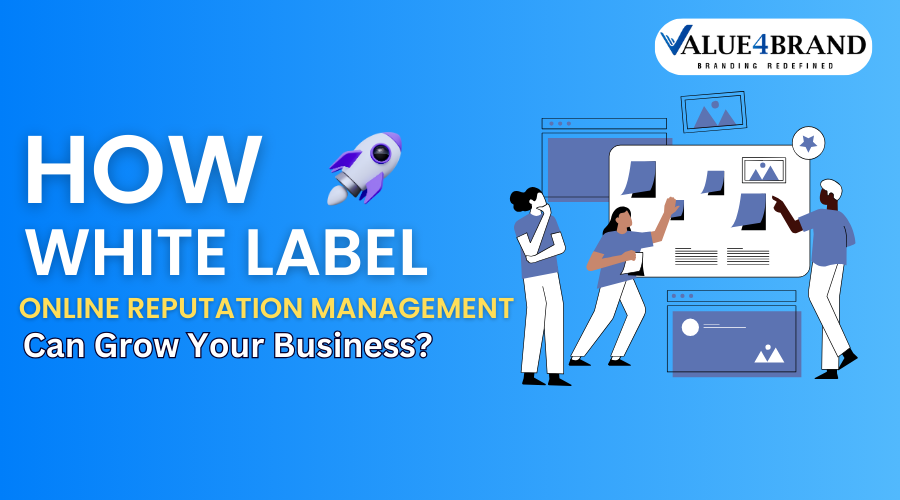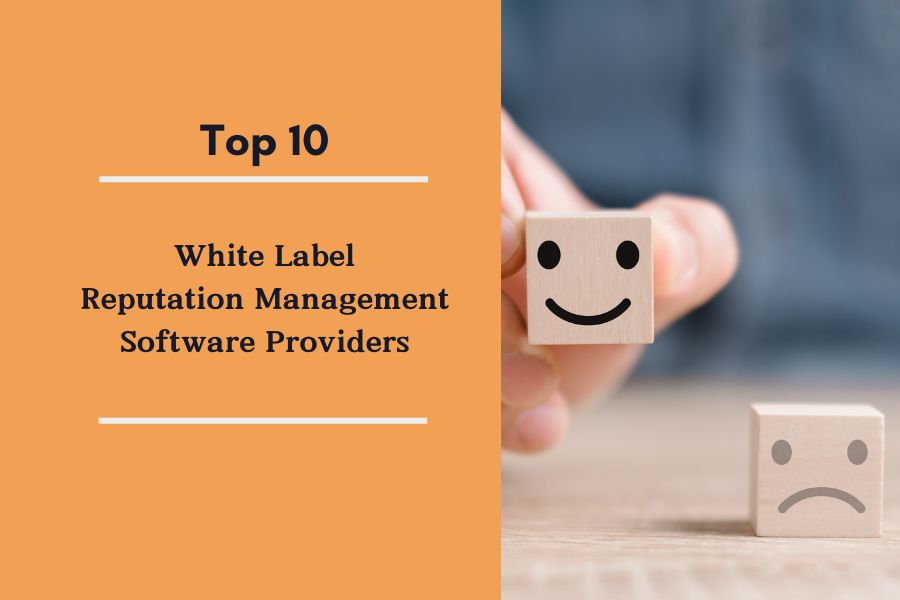In today’s hyper-connected digital landscape, a business’s online reputation is its most valuable asset. It’s the silent salesperson, the trusted advisor, and the first impression rolled into one. Customers, more than ever, rely on reviews, social media sentiment, and search engine results to make purchasing decisions. For businesses, managing this reputation is no longer optional; it’s a critical imperative for survival and growth.
This burgeoning need has created a significant opportunity for agencies – digital marketing firms, PR companies, SEO specialists, web developers, and business consultants – to offer reputation management services. However, building a proprietary software solution from scratch is costly, time-consuming, and resource-intensive. This is where white-label reputation management software emerges as a game-changer, offering a powerful, scalable, and branded solution that empowers agencies to expand their service offerings, increase revenue, and solidify client relationships.
This comprehensive article will delve into the strategic advantages of white-label reputation management software, exploring its core functionalities, the benefits it offers to agencies and their clients, and key considerations for choosing the right platform.
The Evolving Landscape of Online Reputation: A Pressing Need
The digital age has fundamentally altered how businesses are perceived. A single negative review can deter hundreds of potential customers, while a strong collection of positive feedback can act as a powerful magnet. Consider these realities:
- Review Dominance: Over 90% of consumers read online reviews before visiting a business, and nearly 80% trust online reviews as much as personal recommendations.
- Search Engine Impact: Google, Yelp, and other platforms heavily weigh review quantity, quality, and recency in local search rankings.
- Social Media Influence: Conversations on platforms like Facebook, Twitter, and Instagram can quickly shape public perception, for better or worse.
- Brand Trust: A consistent, positive online presence builds trust, which directly correlates with customer loyalty and sales.
Without active management, a business’s online reputation can quickly spiral out of control, leading to lost revenue, diminished brand value, and a struggle to attract new customers. The demand for expert reputation management has never been higher, creating a fertile ground for agencies equipped to deliver these essential services.
Demystifying White-Label Reputation Management Software
At its core, white-label reputation management software is a complete, ready-to-use platform developed by one company (the provider) that another company (the agency/reseller) can rebrand and sell as its own. This means:
- Your Brand, Their Technology: The software is customized with your agency’s logo, colors, and branding elements. Your clients interact with a platform that appears to be entirely yours.
- No Development Hassles: You bypass the enormous investment in R&D, coding, infrastructure, and ongoing maintenance. The provider handles all the technical heavy lifting.
- Immediate Service Offering: You can launch a sophisticated reputation management service almost instantly, without months or years of development time.
This model allows agencies to leverage cutting-edge technology without the associated risks and costs, focusing instead on client acquisition, service delivery, and strategic insights.
Why Agencies Are Turning to White-Label Solutions: A Strategic Advantage
The benefits of integrating white-label reputation management software into an agency’s portfolio are manifold, creating a powerful strategic advantage:
1. Expanded Service Portfolio & New Revenue Streams
White-label solutions enable agencies to instantly add a high-demand service to their offerings. This isn’t just an add-on; it’s a critical, standalone service that businesses are actively seeking. Agencies can:
- Cross-sell: Offer reputation management to existing SEO, web design, or marketing clients.
- Upsell: Package it with other services, creating premium bundles.
- Standalone Service: Attract new clients specifically looking for reputation management expertise.
- Recurring Revenue: Reputation management is an ongoing process, leading to predictable monthly recurring revenue (MRR) for agencies.
2. Enhanced Client Value & Retention
By offering reputation management, agencies become more indispensable to their clients. Proactively managing a client’s online image demonstrates a deep understanding of their business challenges and a commitment to their long-term success. This leads to:
- Increased Loyalty: Clients see tangible results (more positive reviews, better online sentiment) and are less likely to seek services elsewhere.
- Holistic Solutions: Agencies can address a broader spectrum of client needs, solidifying their position as a trusted, all-in-one partner.
- Demonstrable ROI: The software often provides clear reporting, allowing agencies to easily show clients the return on their investment.
3. Brand Building & Market Differentiation
Having a robust, branded reputation management platform sets an agency apart from competitors. It projects an image of professionalism, technological sophistication, and a comprehensive understanding of the digital landscape.
- Expert Positioning: Agencies become recognized as experts in a critical area of online presence.
- Unique Selling Proposition (USP): It provides a distinct advantage in pitches and proposals, showcasing a cutting-edge tool clients won’t find with every competitor.
- Brand Consistency: All client interactions occur within the agency’s branded environment, reinforcing its identity.
4. Cost-Effectiveness & Scalability
The cost of developing and maintaining proprietary software is prohibitive for most agencies. White-label solutions drastically reduce this barrier:
- Low Upfront Investment: Agencies pay a subscription fee to the provider, avoiding massive development costs.
- Reduced Operational Overhead: The provider handles hosting, updates, security, and technical support, freeing up agency resources.
- Scalability: As an agency grows, the white-label platform can easily scale to accommodate more clients and data without additional infrastructure investment from the agency.
5. Efficiency & Focus on Core Competencies
By outsourcing the technology, agencies can dedicate their time and expertise to what they do best: client strategy, marketing, and relationship building.
- Automation: The software automates many tedious tasks (review monitoring, reporting), allowing agency teams to focus on high-value activities.
- Streamlined Workflows: Integrated tools and centralized dashboards simplify management, improving team productivity.
- Reduced Training Time: Most white-label platforms are designed for user-friendliness, minimizing the learning curve for agency staff.
Key Features to Look for in a White-Label Platform
Not all white-label reputation management software is created equal. When choosing a provider, agencies should prioritize platforms that offer a comprehensive suite of features essential for effective reputation management:
-
Review Monitoring & Alerts:
- Real-time tracking of reviews across major platforms (Google My Business, Yelp, Facebook, industry-specific sites).
- Instant notifications for new reviews (positive or negative) to enable swift responses.
- Sentiment analysis to gauge the overall tone of reviews.
-
Review Generation & Solicitation:
- Automated email/SMS campaigns to encourage satisfied customers to leave reviews.
- Customizable landing pages for review collection.
- Ability to filter negative feedback internally before it goes public, allowing for direct customer service resolution.
-
Social Listening & Sentiment Analysis:
- Monitoring brand mentions and conversations across social media platforms.
- Analyzing sentiment to understand public perception and identify potential PR crises.
-
Local SEO & Listing Management Integration:
- Tools to manage and synchronize business listings across multiple directories (Google, Yelp, Yellow Pages, etc.) to ensure consistency.
- NAP (Name, Address, Phone) consistency checks, crucial for local SEO.
-
Customizable Dashboards & Reporting:
- Branded client dashboards that provide clear, visual insights into reputation performance.
- Automated, professional reports that can be easily shared with clients, showcasing progress and ROI.
- Granular data on review trends, response rates, and sentiment changes.
-
Competitor Analysis:
- Ability to track and compare a client’s reputation metrics against key competitors.
- Identifying strengths and weaknesses in the competitive landscape.
-
Client Management & User Roles:
- Multi-client support with segregated data.
- Customizable user permissions for different team members and clients.
- A secure, branded client portal for easy access to reports and data.
-
API & Integrations:
- Integration capabilities with other essential agency tools (CRM, project management, analytics platforms).
- An open API for custom integrations and advanced data manipulation.
-
Branding & Customization Options:
- Full white-labeling of the platform, including domain, logo, colors, and email templates.
- Flexibility in customizing client-facing elements to maintain brand consistency.
Who Benefits Most? Ideal Resellers
While virtually any agency can benefit, certain types of businesses are particularly well-suited to leverage white-label reputation management software:
- Digital Marketing Agencies: Enhance their holistic marketing strategies by including reputation as a core component.
- PR Firms: Proactively manage brand perception and mitigate crises with real-time monitoring tools.
- SEO Agencies: Directly impact local search rankings through review management and listing consistency.
- Web Design & Development Companies: Offer an essential post-launch service, ensuring their clients’ beautiful websites are backed by a strong online image.
- Business Consultants: Provide actionable strategies for improving client trust and attracting new customers.
- Franchise Organizations: Ensure brand consistency and positive reputation across all franchisee locations.
Implementing Your White-Label Solution: A Roadmap
Once an agency decides to adopt white-label reputation management, a strategic implementation plan is crucial:
- Choosing the Right Partner: Conduct thorough research. Evaluate providers based on features, pricing models, support quality, customization options, and their own reputation. Request demos and trial periods.
- Onboarding & Training: Work closely with the provider during onboarding. Train your team thoroughly on the platform’s functionalities, ensuring they can effectively manage client accounts and interpret data.
- Pricing & Packaging Your Services: Develop clear service packages and pricing structures. Consider tiered options (basic monitoring, advanced generation, full-service management) to cater to diverse client needs and budgets.
- Marketing Your New Offering: Announce your new service to existing clients and prospects. Update your website, create marketing collateral, and educate your sales team on the value proposition. Highlight the benefits clients will gain, such as increased trust, better search rankings, and more sales.
The Future of Reputation Management & White-Label
The field of reputation management is continuously evolving. We can expect to see further advancements in:
- AI and Machine Learning: More sophisticated sentiment analysis, predictive analytics for potential reputation issues, and automated response suggestions.
- Integrated Customer Experience: Tighter integration with CRM systems, customer service platforms, and marketing automation tools for a truly holistic approach to customer feedback.
- Voice Search Optimization: As voice search grows, managing how businesses appear in verbal responses will become increasingly important.
White-label platforms will continue to adapt to these trends, ensuring agencies always have access to cutting-edge tools without the burden of constant in-house development.
Conclusion
In an era where online perception directly dictates business success, offering reputation management services is no longer a luxury but a necessity for forward-thinking agencies. White-label reputation management software provides an unparalleled opportunity to meet this demand head-on. By leveraging pre-built, branded technology, agencies can swiftly expand their service offerings, generate new revenue streams, enhance client value, and differentiate themselves in a competitive market. It empowers them to become indispensable partners in their clients’ digital journeys, helping businesses not just survive, but thrive, in the ever-evolving online world. For any agency looking to unlock significant growth and solidify its position as a comprehensive digital solution provider, white-label reputation management software is the strategic advantage that cannot be overlooked.

